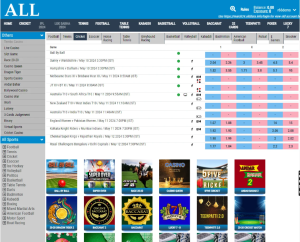Every year, many Americans lose money to auto transport scams. These aren’t random criminals, today’s fraudsters create sophisticated operations that perfectly mimic legitimate car shipping companies.
They steal real logos, display fake licensing numbers, and hire professional phone staff. Some operate for months before vanishing with customer deposits.
The stakes are higher in 2025 with record vehicle values and increased transport demand. Scammers target everyone from students to luxury car owners.
Avoiding common auto transport scams isn’t about luck. It’s about systematic verification of every company you consider using proven methods that best car shipping companies welcome.
At Transportvibe – America’s trusted review platform for auto transport, we help you find reliable vehicle transport facilities. We understand your unique needs and offer customized solutions. We’re here to help you avoid scams and serve as a trustworthy auto transport partner.
Avoid Common Auto Transport Scams in 2025: Understanding the Industry Landscape
The auto transport industry operates through two main players: carriers and brokers.
Carriers own the trucks that physically move your vehicle whereas brokers connect customers with carriers, handling logistics and paperwork. Auto transporters are the professional drivers or carriers responsible for physically moving vehicles, ensuring safe and reliable delivery.
Most of the best car shipping companies work as brokers. They maintain networks of vetted carriers to ensure reliable service. Professional auto transport providers, known for their reliability and customer-centric approach. This system protects consumers from dealing directly with potentially unreliable truckers.
Legitimate operations require federal licensing. The Federal Motor Carrier Safety Administration (FMCSA) regulates all interstate vehicle transport. Companies need a US Department of Transportation (USDOT) and an MC number to operate legally.
Pricing depends on distance, vehicle size, transport type, and seasonal demand. Open transport costs $1200 on average for cross-country shipping. Enclosed vehicle shipping adds more to base prices.
Best car shipping services maintain transparent pricing structures. They provide detailed quotes explaining all fees upfront. Legitimate car transport companies never surprise customers with hidden charges.
The industry handles over 4 million vehicle shipments annually. Each vehicle shipment involves careful coordination and professional handling to ensure safe delivery. Peak seasons (summer and fall) see 30% price increases due to demand. Winter shipping often offers better rates but longer transit times.
Professional auto shipping companies offer secure, comprehensive vehicle shipping services, providing trusted solutions for customers’ transport needs.
Introduction to Vehicle Shipping
Moving a car a long distance? Vehicle shipping is a key service. This could be for a cross-country move. Maybe you’re relocating for a season. Or perhaps you bought a car out of state.
Finding the best car shipping company can feel overwhelming. There are so many options available.
When you choose a company, look for a good reputation. Check for positive customer reviews. Make sure their pricing is clear. They should also have full insurance coverage. The best companies make the process simple. They ensure your vehicle shipping is smooth and stress-free. This is true no matter how many companies you compare.
Do you need to ship one car or many? Take time to research your options. This will help you find the best solution for your needs.
Car Shipping Process
The car shipping process starts with a key step. You need to pick a reliable auto transport company. Make sure it fits your needs and budget.
Once you choose a company, you’ll prepare your car. This means cleaning it. You also need to remove personal items. Don’t forget to take photos of its current condition. This documents how it looks.
Your chosen company will then arrange the car’s pickup. You can choose open or enclosed transport. Staying in touch with your car shipping specialists is important. This helps ensure everything goes smoothly.
Companies offer many different services. Options range from standard open carrier transport to premium enclosed transport. The enclosed option provides extra protection.
A reliable auto transport company will keep you informed. They’ll update you at every stage. This goes from pickup to delivery. Their goal is to make the entire car shipping process as easy as possible.
Types of Transport
You can choose from different ways to ship your car. These options depend on what you need and what you want to spend.
Open carrier car shipping is the most popular choice. Your car travels on an open trailer with other vehicles. This method costs the least. It’s used a lot by shipping companies for regular cars.
Need more protection? Enclosed car shipping is a good choice. This is especially true for luxury, classic, or very valuable cars. Your vehicle stays safe inside a closed trailer. It’s protected from rough weather and road hazards.
Some car transport companies also provide flatbed transport. This is for cars that need special handling. Or, it’s for vehicles that can’t be loaded onto standard trailers.
The 6 Most Common Auto Transport Scams (Detailed Analysis)
Auto transport scams cost Americans over millions of dollars annually, with fraudsters targeting both experienced shippers and first-time customers. Scams can ruin the car shipping experience for customers, leading to stress, financial loss, and damaged trust.
1. Bait-and-Switch Pricing Schemes
This classic scam starts with quoting a car shipping rate 30-50% below market rates. For example, Scammers offer $400 for routes where legitimate auto transport companies charge $650.
After you sign contracts, they claim “unexpected circumstances” require price increases. Common excuses include fuel surcharges, carrier unavailability, or vehicle size miscalculations.
The psychology is simple: they exploit your time investment. Once you’ve coordinated pickup details, most victims pay inflated prices rather than restart their search.
Legitimate car shipping companies provide binding quotes with clear terms. Some also offer a price lock promise, ensuring customers are protected from unexpected price increases and enjoy transparent, reliable pricing. Be suspicious of contracts using vague language like “estimated pricing” or “subject to carrier approval.”
Use Transportvibe’s car shipping cost calculator to estimate the price of shipping your vehicle.
2. Phantom/Ghost Companies
Fake car shipping services create sophisticated websites that replicate established businesses. They invest in professional design, fake testimonials, and stolen company credentials to appear legitimate. They even copy logos, color schemes, and even company names with slight variations.
They purchase fake reviews across multiple platforms and list fabricated addresses. Some display stolen USDOT numbers from legitimate carriers or generate fake licensing numbers.
After collecting deposits, ghost car shipping companies vanish completely. Phone numbers disconnect, websites disappear, and email addresses bounce.
Best car shipping companies maintain consistent contact information across all platforms. Legitimate firms have verified operating histories and insurance records.
3. Double Brokering Fraud
You may have hired a broker who secretly sells your shipment to another broker without disclosure. The second broker may sell to a third party, creating a chain where nobody takes responsibility.
Legitimate truck drivers unknowingly participate when accepting loads from fraudulent brokers. They’re often left unpaid, creating additional complications for everyone involved.
Multiple handoffs increase theft opportunities. Each transfer point creates documentation gaps that scammers exploit, while insurance coverage becomes unclear with conflicting contracts.
This practice damages relationships between honest brokers and carriers.
To avoid such situations, ask your broker to identify the specific carrier assigned to your vehicle. It is crucial to thoroughly vet car shippers to ensure safe and efficient vehicle transport. Professional auto shipping companies provide carrier details, including driver contact information.
4. Upfront Payment Extortion
Scammers demand full payment before assigning carriers or scheduling pickup. They create artificial urgency with “limited-time pricing” or claims that “carriers require full prepayment.”
They prefer untraceable payment methods like wire transfers, cash apps, and cryptocurrency. Credit cards offer consumer protections that fraudsters want to avoid.
Professional car shipping companies never create false urgency or pressure immediate payment decisions. Legitimate car shipping companies understand industry cash flow. Carriers collect payment upon delivery, making upfront collection unnecessary. They sometimes require small deposits ($100-$ 200) for secure bookings, with the final payment due at the destination.
5. Hidden Fee Avalanche
Fraudulent car shipping services attract customers with competitive base rates, then gradually add unexpected charges throughout the booking process. They often hide these fees in lengthy contracts with small print, allowing “additional charges as needed.” Final pricing often exceeds legitimate companies by 200-300%. To avoid hidden fees, always request a detailed and accurate quote for your car shipment before booking.
Common fees include “processing” for paperwork, “listing” to post shipments, “fuel surcharges” for gas prices, “special handling” for standard vehicles, and “delivery fees” for door-to-door service.
Best auto transport companies include all standard services in their quotes. Real additional fees are clearly explained and optional – like expedited service or enclosed transport upgrades.
6. Vehicle Theft Operations
Fake vehicle transport services pose as legitimate transport companies to legally steal vehicles from unsuspecting owners. They create convincing pickup scenarios with professional-looking drivers and equipment.
They often rush inspections or skip documentation entirely. They may claim “computerized systems” eliminate paperwork needs or refuse to show identification.
By the time owners realize they’ve been scammed, stolen vehicles have often disappeared into illegal networks.
Real drivers carry proper identification, insurance cards, and signed contracts. They complete thorough vehicle inspections with detailed documentation and provide immediate copies of all signed documents. A professional car transporter ensures that vehicles are handled and delivered safely, and their credentials should always be verified before handing over your car.
Advanced Red Flag Detection System
Smart consumers use a tiered approach to evaluate auto transport companies, categorizing warning signs by severity level. This system helps distinguish between legitimate car shipping companies and sophisticated scammers who exploit common industry practices.
Level 1 Red Flags (Immediate Disqualifiers)
- No FMCSA Registration – Legitimate car shipping companies must have verifiable USDOT/MC numbers.
- Demands Full Upfront Payment – Professional auto shipping companies never require complete prepayment.
- Untraceable Payment Methods Only – Wire transfers, cash apps, or cryptocurrency demands indicate fraud.
- No Physical Address – Best car shipping companies maintain verifiable business locations.
- Refuses Written Contracts – All legitimate transactions require detailed written agreements.
Level 2 Red Flags (Proceed with Extreme Caution)
- Prices 40%+ Below Market – Legitimate car transport companies can’t sustain unrealistic pricing.
- High-Pressure Sales Tactics – Professional firms allow time for research and decision-making.
- Vague Communication – Evasive answers about licensing, insurance, or carrier assignments.
- Recent Company Formation – New businesses without established track records require extra verification.
If you spot any of these red flags, move on and check Transportvibe for reliable choices.
Complete Verification Guide: How to Identify Legitimate Companies
This verification process separates legitimate car shipping companies from sophisticated scammers. Follow these steps to ensure you’re working with licensed, insured professionals who will safely deliver your vehicle.
Step 1: FMCSA Database Verification
Visit the Federal Motor Carrier Safety Administration (FMCSA) website. Enter the company’s USDOT number in the search field.
What to Look For:
- Active operating status (not revoked or suspended)
- “Authorized For Hire” under operating authority
- Vehicle transport is listed in commodity classifications
- Recent safety inspection records
Vehicle transport services that cannot provide MC number when requested – Such a company is likely to be a fake. Also, numbers belonging to different companies in database searches is another rag flag.
Step 2: License and Registration Cross-Check
Verify the company’s Motor Carrier (MC) number matches their USDOT registration from the FMCSA database. Both numbers should appear on their website and marketing materials.
Additional verification parameters:
- Check state-level licensing requirements for their headquarters location
- Confirm business registration with the Secretary of State database
- Verify any additional permits for specialized transport services
Best car shipping companies display their licensing prominently and provide instant verification access.
Step 3: Insurance Coverage Validation
Request current insurance certificates directly from the company. Legitimate carriers maintain comprehensive coverage that exceeds federal minimums.
Required Coverage Types:
- Auto liability insurance
- Cargo insurance for vehicle damage protection
- General liability for business operations
- Workers’ compensation for employee coverage
Verification Process:
- Contact the insurance company directly to confirm active policies
- Check coverage limits match the carrier’s claims
- Ensure policy effective dates cover your shipping period
Professional car shipping companies provide insurance documentation promptly and without hesitation.
Step 4: Business Presence Investigation
Scammers often use virtual offices or residential addresses as fake business locations. Verify the company maintains a legitimate physical business location.
Use Google Maps for business verification. Also, manually confirm their listed addresses. Furthermore, do cross-reference the address with business registration records.
Step 5: Financial Stability Assessment
Research the company’s financial health through multiple business databases and credit reporting services.
Key Indicators:
- Years in business and consistent operating history
- Better Business Bureau accreditation and rating
- D&B (Dun & Bradstreet) business credit reports
- Court records for recent bankruptcies or judgments
Also, don’t forget to check recent bankruptcy filings or debt settlements. So, your poorly chosen car transport companies with financial instability disappear mid-shipment or fail to pay carriers.
Step 6: Online Reputation Analysis
Distinguish authentic customer reviews from fake testimonials using advanced verification techniques.
Review Platform Analysis:
- Google Reviews: Check reviewer profiles and posting patterns
- Transport-specific sites: Transportvibe, Transport Reviews, Trustpilot, etc.
- Social media: Facebook, Twitter for customer interactions
To find authentic reviews, look for detailed experiences with specific dates and locations from customers. Surely, you’ll find a mix of positive and negative feedback with company responses. Additionally, reviewers should have a history of reviews beyond single reviews.
Step 7: Service Capability Verification
Confirm the company can actually provide the services they advertise through a direct capability assessment.
Operational Verification:
- Request specific carrier assignments for your route.
- Ask about their carrier network size and geographic coverage.
- Inquire about backup plans for carrier cancellations.
- Verify specialized service capabilities, including open and enclosed transport options.
Equipment and Fleet Assessment:
- Request photos of typical transportation equipment.
- Confirm equipment meets safety and insurance standards.
Legitimate car shipping companies provide detailed operational information and maintain transparent relationships with their carrier networks.
Step 8: Contract and Pricing Transparency
Analyze contract terms and pricing structures for professional standards and legal compliance.
Contract Essential Elements:
- Clear service descriptions and delivery timelines.
- Detailed fee breakdown with no hidden charges.
- Insurance coverage explanations and claim procedures.
- Cancellation policies and refund terms.
- Dispute resolution procedures.
Compare quotes from multiple verified companies to establish market baselines. Understand seasonal pricing variations and route-specific factors that affect legitimate costs.
Confirm whether estimates are binding or non-binding before signing contracts. Verify that additional fees are clearly explained upfront with no surprise charges.
Quick Verification Checklist
✓ FMCSA registration confirmed with active status
✓ Insurance certificates verified with carriers
✓ Physical business address confirmation through multiple sources
✓ Positive online reputation across multiple platforms
✓ Financial stability showing consistent operation
✓ Service capabilities match advertised offerings
✓ Contract terms are transparent and comprehensive
✓ Pricing aligns with market standards for similar services
The car shipping company that checks all these marks is the one you should work with.
What to Do if You’ve Been Scammed: Recovery Action Plan
Discovering you’ve been victimized by auto transport scams requires immediate action to maximize recovery chances. This plan outlines your legal rights and essential recovery steps.
Immediate Response (First 24 Hours)
Contact your bank immediately to halt pending transactions. Place fraud alerts on all accounts used for payments.
Cancel any scheduled automatic payments. Document all unauthorized transactions with timestamps and amounts.
Change passwords for compromised accounts. Monitor credit reports for unauthorized activity or new account openings.
Document everything, including all communications, contracts, and payment confirmations, before the evidence disappears. Print physical copies of digital documents.
Photograph vehicles, equipment, or personnel if physical pickup occurred. Record license plates and driver identification details.
Financial Recovery
Contact your credit card company within 30-60 days to dispute fraudulent charges. Credit cards offer stronger consumer protections than other payment methods.
File formal chargeback requests with detailed documentation. Success rates will reach higher with proper evidence.
Regarding wire transfers, contact the receiving banks immediately – recovery becomes nearly impossible after the withdrawal. Wire transfer recovery rates drop below 10% once funds are accessed.
Report unauthorized debit transactions within 2 days for maximum federal protection. Close compromised accounts and open new ones.
Legal Rights and Reporting
The Fair Credit Billing Act protects credit card users from fraudulent charges. You have 60 days to dispute charges with zero liability during investigations.
The Electronic Fund Transfer Act limits debit card liability to $50 when reported within 2 days.
File with FMCSA for unlicensed operators. Report to FTC for consumer fraud investigations.
Contact state attorneys’ general offices for additional consumer protection remedies and potential criminal prosecution.
File local police reports if vehicles were stolen. Report online fraud to FBI’s IC3 for federal investigation.
Obtain official report numbers for insurance claims and legal proceedings.
Recovery Options
File lawsuits for losses under state limits (typically $5,000-$10,000). These courts are designed for consumers without legal representation.
Contact auto insurance for comprehensive coverage on stolen vehicles. Review credit card benefits for purchase protection beyond standard chargebacks.
Consider attorneys for losses exceeding $5,000. Consumer protection lawyers often work on contingency for strong cases.
Join class-action lawsuits against major scam operations for better recovery potential than individual suits.
Ongoing Protection
Avoid “recovery” schemes promising to retrieve lost funds for upfront fees. These are always fraudulent operations targeting previous victims.
Enroll in monitoring services to detect identity theft. Consider credit freezes if extensive personal information was compromised.
Recovery Expectations
Credit card disputes succeed in 60-80% of documented cases. Criminal restitution varies widely but can provide partial compensation.
Act quickly – most recovery options have strict time limits. Financial disputes typically resolve in 30-90 days, while criminal cases take 1-3 years.
Focus on high-success recovery methods first: credit card disputes, regulatory complaints, and legitimate car shipping companies for future transport needs.
Recovery from auto transport scams requires persistence across multiple approaches. While complete recovery isn’t guaranteed, proper action prevents additional losses and helps shut down criminal operations.
Frequently Asked Questions (FAQ)
Q1: What’s the difference between binding and non-binding quotes, and which protects me from scams?
Ans: Binding quotes guarantee final pricing with no changes, while non-binding estimates can increase based on actual conditions. Binding quotes from legitimate car shipping companies offer better scam protection by preventing surprise price increases.
Q2: How do I verify if a car shipping company is legitimate and not a scam?
Ans: Check their USDOT and MC numbers on the FMCSA database for active status. Verify their physical business address and confirm insurance coverage directly with their insurance provider.
Q3: What contract terms are red flags in auto transport agreements?
Ans: Avoid contracts with vague pricing language like “subject to change” or “estimated costs” without limits. Red flags include clauses allowing unlimited price increases or requiring full payment before carrier assignment.
Q4: What are the warning signs that my vehicle might be stolen rather than legitimately transported?
Ans: Drivers who refuse to show proper identification, insurance cards, or skip detailed vehicle inspections are major warning signs. Be suspicious of unusual pickup locations away from your address or missing company logos on transport equipment.
Q5: How do I document my vehicle’s condition to protect against scam damage claims?
Ans: Take detailed photos from all angles with timestamps before pickup, focusing on existing scratches, dents, or damage. Keep copies of the signed inspection report and ensure the driver documents all existing conditions accurately.
Q6: What’s the single most important thing I can do to avoid auto transport scams?
Ans: Verify the company’s FMCSA registration and never pay full amounts upfront – reliable auto transport companies require minimal deposits with final payment due upon delivery.
Final Words
Protecting yourself from auto transport scams requires vigilance, not paranoia. The verification methods in this guide create a strong defense against sophisticated fraudsters.
Remember: legitimate car shipping companies welcome scrutiny and provide transparent verification information. Scammers create obstacles when customers ask detailed questions.
Don’t let artificial urgency or unrealistic pricing cloud your judgment. Real auto transport companies earn business through professionalism, not pressure tactics.
For a truly worry-free experience, consider Transportvibe. We connect you with authentic, reliable car shipping companies. Our goal is to help you avoid becoming a victim of an auto transport scam and ensure a safe vehicle transport experience every time.








